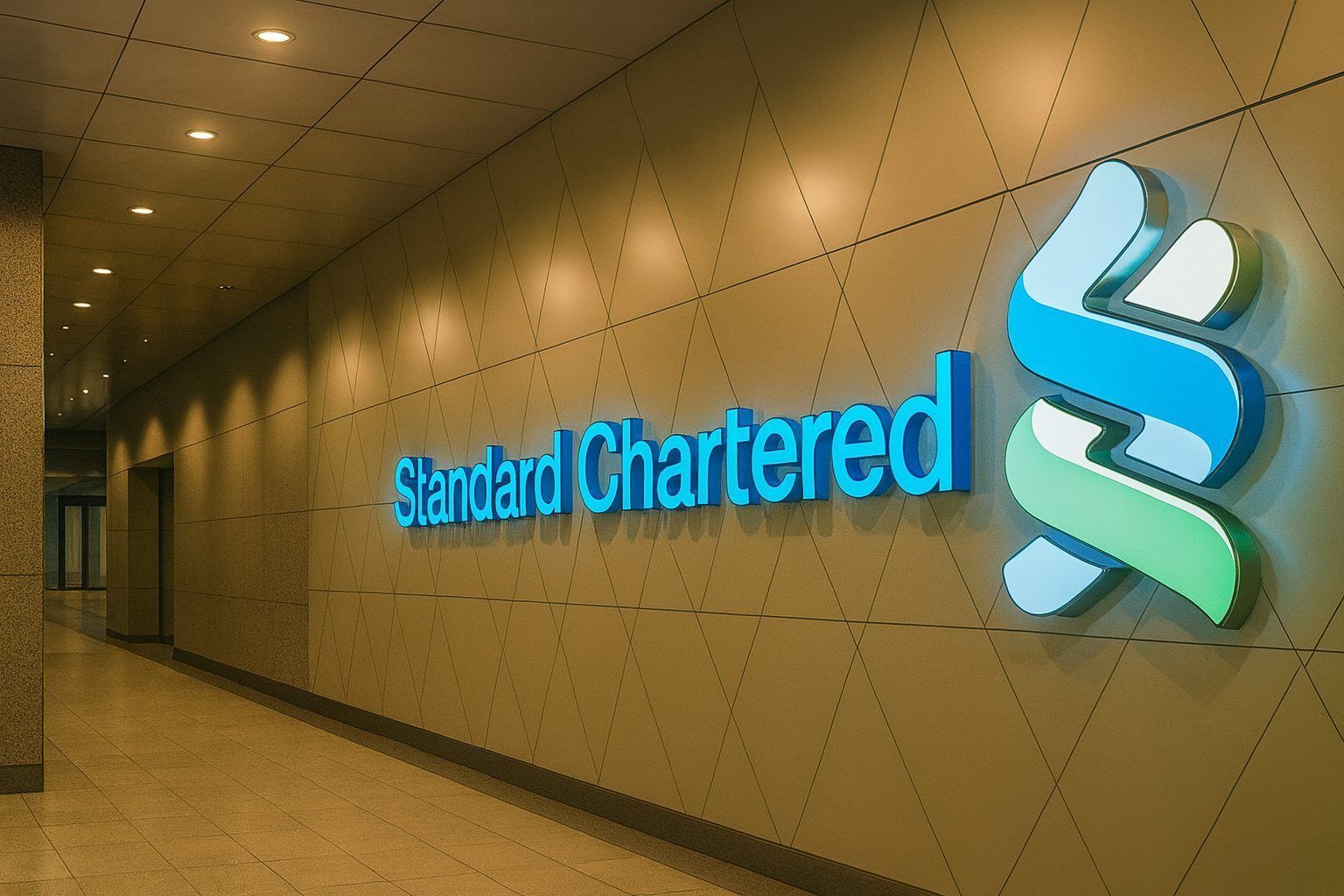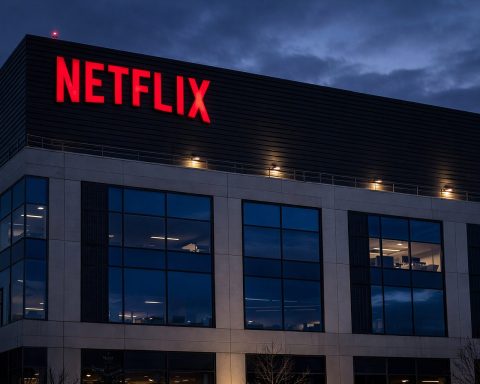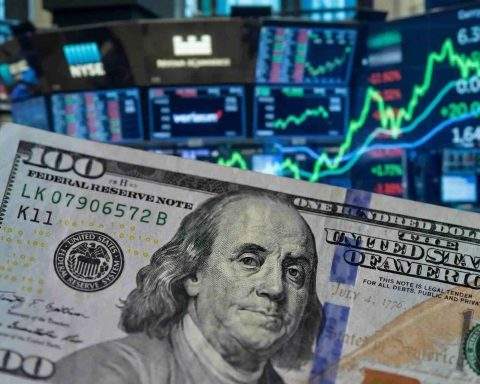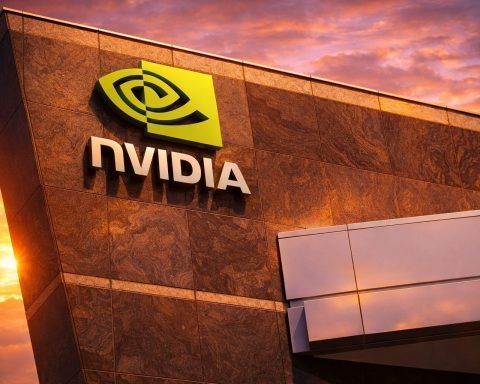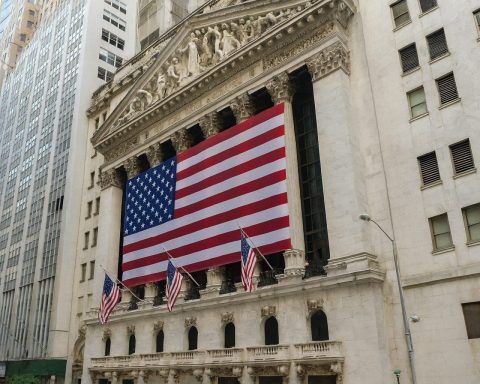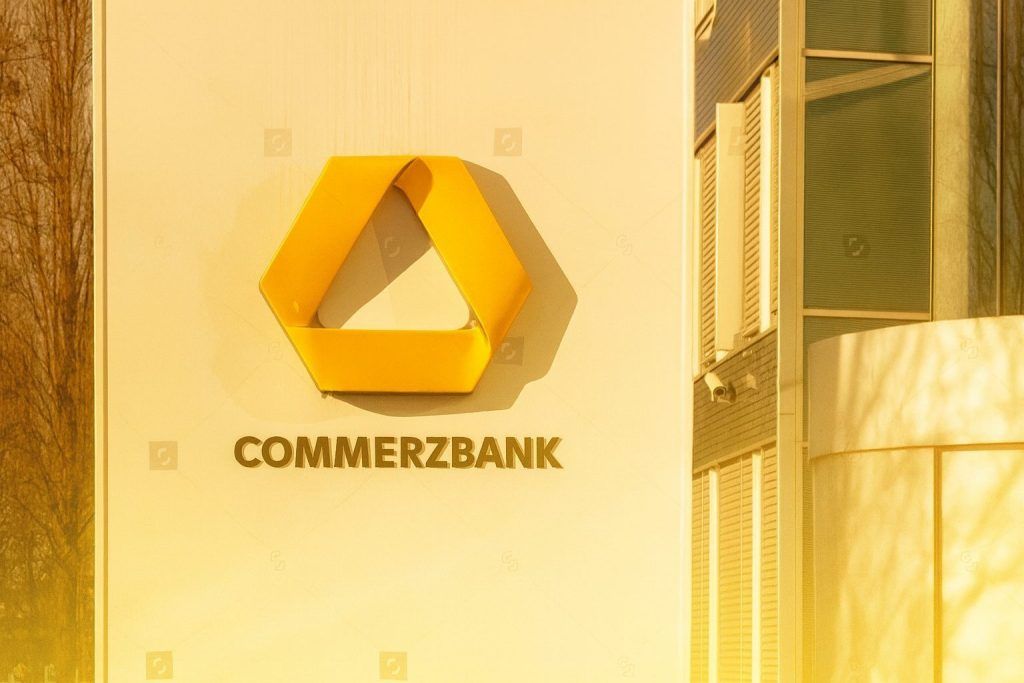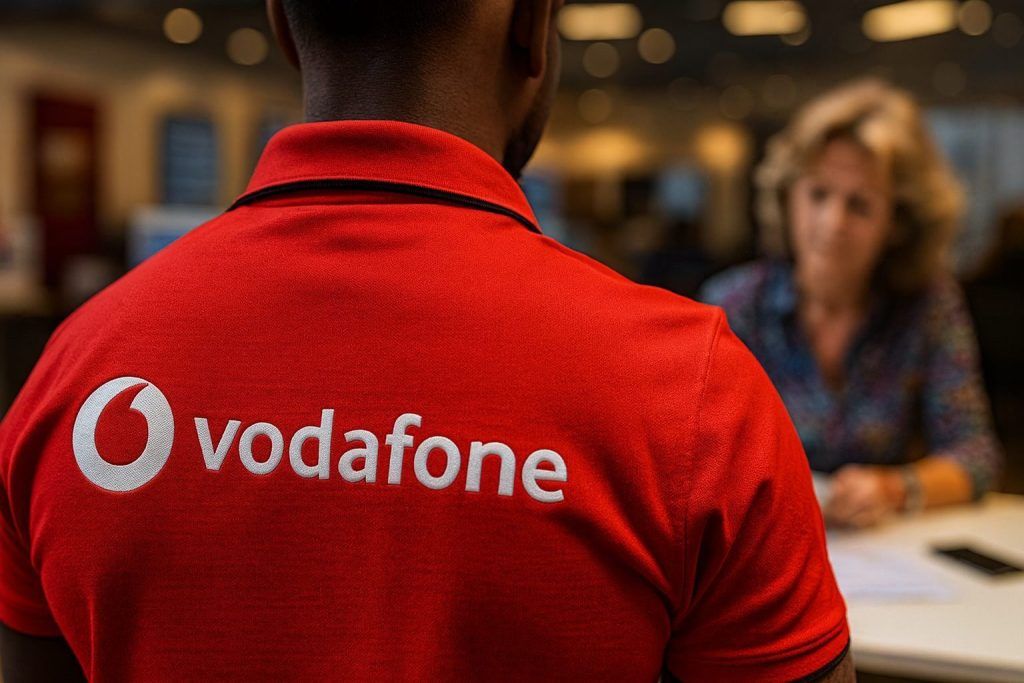Standard Chartered PLC (LON: STAN) trades near 52‑week highs on 27 November 2025 as it steps up its share buyback, launches new health and wellness partnerships with Bupa Global and WHOOP, celebrates a Women in Tech milestone in Egypt, and doubles down on digital assets and stablecoins – all against the backdrop of a US$2.7bn 1MDB lawsuit in Singapore.
- Share price near year‑high: As of late morning in London, Standard Chartered PLC (LON: STAN) is trading around 1,650p, less than 1% below its 52‑week high of 1,663.5p set on 13 November 2025, valuing the bank at roughly £37bn. FT Markets+1
- Buyback rolls on: The bank disclosed a fresh “Transaction in Own Shares” today, confirming the repurchase of 474,085 shares on 26 November for about £7.8m, as part of its US$1.3bn share buyback programme. TradingView+2MarketScreener+2
- New health-and-wealth push: A new health and wellness proposition for affluent clients in Hong Kong and Singapore launches via strategic partnerships with Bupa Global and wearables firm WHOOP, extending the bank’s “wealth meets wellness” positioning. Standard Chartered Bank+3WHOOP+3WHOOP+3
- Women in Tech milestone in Egypt: Standard Chartered, AUC Venture Lab and Village Capital have graduated the first Futuremakers Women in Tech cohort in Egypt, with 11 women‑led startups completing the programme and three receiving US$10,000 equity‑free grants. TechAfrica News+2TechAfrica News+2
- Digital assets & stablecoins in focus: A fresh Standard Chartered insight piece on stablecoins warns that “digital dollars” could drain up to US$1 trillion from emerging‑market bank deposits over three years, a figure now echoed by South Africa’s central bank. The bank also just won a high‑profile digital asset custody mandate from 21Shares. MarketScreener+4Standard Chartered Bank+4B…
- Regulatory overhang: Earlier this week, Singapore’s High Court allowed a US$2.7bn 1MDB‑linked lawsuit against Standard Chartered to proceed, a move the bank disagrees with and plans to appeal. Reuters+1
Market snapshot: STAN trades close to 52‑week highs
Standard Chartered shares continue to grind higher in 2025. As of 11:34 GMT on Thursday, 27 November 2025, STAN is quoted around 1,650–1,648p on the London Stock Exchange, just 0.8% below its recent 52‑week high of 1,663.5p and well above the 52‑week low of 872.8p touched in April. FT Markets+1
That rally leaves the stock almost 90% above its April low, underscoring the strength of the recovery after a volatile 2024–25 period for global banks.
Key current valuation metrics:
- Market cap: ~£37–37.5bn
- Trailing P/E: ~11.5x
- Dividend yield: about 1.9%, following the latest payout in September
- 52‑week range:872.8p – 1,663.5p FT Markets+1
On the sell‑side side, the average 12‑month analyst price target sits around 1,604p, implying modest downside from today’s level, although some targets stretch up toward 1,820p. Investing.com+1
In other words, the market is already pricing in much of the turnaround story – which is why today’s news flow matters for seeing whether the momentum is sustainable.
Today’s RNS: 474,085 more shares bought back
Standard Chartered’s first big headline this morning is a fresh Regulatory News Service (RNS) filing titled “Transaction in Own Shares”. TradingView+1
According to the announcement:
- On 26 November 2025, the bank bought back 474,085 ordinary shares (US$0.50 nominal value) from Goldman Sachs International.
- The volume‑weighted average price paid was about 1,636.1p per share, within a range of roughly 1,601.5p–1,654.5p across London and European venues. TradingView
- As of the evening before the notice, Standard Chartered had already spent about US$787m on this latest buyback, which forms part of the US$1.3bn programme launched after its strong first‑half results. TradingView+2Standard Chartered Bank+2
That means the current buyback is already around 60% complete, with further capacity still to be deployed in coming months (subject to regulatory and capital constraints).
Why investors care
- EPS support and capital return
Fewer shares in issue should, all else equal, increase earnings per share and support the share price – particularly important when the bank has committed to returning at least US$8bn to shareholders between 2024 and 2026 via dividends and buybacks. Standard Chartered Bank+2Standard Chartere… - Signal of confidence
Management’s willingness to keep buying stock close to 52‑week highs reinforces the message from July’s results: the board sees the shares as undervalued versus long‑term earnings power. Reuters+1 - Offsetting legal and macro noise
With regulatory headwinds and macro uncertainty in the background, a mechanical buyback programme provides a tangible, ongoing source of demand for STAN shares.
New Bupa & WHOOP partnerships: turning “wealth” into “health + wealth”
The most eye‑catching strategic move today is the launch of Standard Chartered’s new health and wellness proposition for affluent clients in Asia.
A joint press statement from Standard Chartered and wearable‑tech firm WHOOP confirms that, as of 27 November 2025, the bank is rolling out a new proposition for affluent clients in Hong Kong and Singapore built around: WHOOP+2WHOOP+2
- Private medical insurance from Bupa Global
- Continuous lifestyle and performance tracking via WHOOP’s wearable devices and digital coaching
- Integration with Standard Chartered’s existing Wealth & Retail Banking offering
Coverage in finews.asia adds that the package is designed to give affluent clients access to a more “end‑to‑end” health journey, spanning prevention, diagnosis, treatment, after‑care and wellness coaching. finews.asia
This builds on the bank’s broader “WellnessNOW” and “Now’s Your Time for Wealth” campaigns, which deliberately blur the once‑hard line between pure financial products and lifestyle/wellbeing content for high‑net‑worth clients. ContentGrip+3Standard Chartered Bank+3Stan…
Strategic angle
- Deepening affluent relationships: Affluent and private‑banking clients are central to Standard Chartered’s growth plans, with the group targeting double‑digit wealth income CAGR and around 75% of Wealth & Retail Banking income from affluent clients by 2029. Standard Chartered Bank+2Standard Chartere…
- Differentiation vs. peers: Integrating wellness into wealth is still relatively novel in banking; it positions Standard Chartered as a lifestyle partner rather than just a lender or broker.
- Cross‑sell opportunities: Health coverage and wellbeing data can indirectly support other products – from insurance and legacy planning to investment advice – if used responsibly and within privacy rules.
For investors, this initiative is less about immediate revenue and more about lifetime client value and brand stickiness in competitive affluent markets like Hong Kong and Singapore.
Futuremakers Women in Tech Egypt: 11 startups, 3 winners
In Cairo, Standard Chartered’s focus today is not on balance sheets but on female founders.
The bank, together with AUC Venture Lab and Village Capital, has announced the graduation of the first “Futuremakers Women in Tech” (FWIT) cohort in Egypt, part of Standard Chartered’s global Futuremakers community‑impact programme and funded by the Standard Chartered Foundation. APAnews – Agence de Presse Africaine+4Tech…
Key details from the programme:
- Over 240 applications from women‑led, Egypt‑based startups
- 12 startups selected; 11 successfully completed the programme
- More than 35 training sessions and 40 mentorship/roundtable sessions led by investors, industry experts and seasoned entrepreneurs
- Top three startups – Aziza, Tribe and Learning Rockets – each awarded US$10,000 in equity‑free funding after a Demo Day pitch event. TechAfrica News
The cohort spans sectors including healthcare, e‑commerce, edtech, clean energy, manufacturing and pet insurance, reinforcing the breadth of Egypt’s startup ecosystem. TechAfrica News
Standard Chartered notes that while this is the first Women in Tech cohort in Egypt, Futuremakers programmes have already supported more than 4,000 women founders across 17 markets, from Africa to the Middle East and Asia. TechAfrica News+1
Why this matters beyond CSR
- ESG and brand equity: Investors increasingly look at social impact and gender inclusion when assessing banks, particularly in emerging markets.
- Deal flow insight: Supporting early‑stage founders gives Standard Chartered early visibility into new technologies and business models in markets where it already lends and advises.
- Regulatory goodwill: Demonstrable contribution to financial inclusion and entrepreneurship can strengthen the bank’s social licence to operate in key jurisdictions.
Stablecoins, digital dollars and a US$1tn emerging‑markets risk
On the thought‑leadership front, Standard Chartered’s Corporate & Investment Banking arm has published a new article titled “Bits, blocks and bottom-lines: Corporate interest in stablecoins is growing – but what’s behind the rise?” dated 27 November 2025. Standard Chartered Bank+1
The piece highlights:
- Rapid adoption of stablecoins as tools for faster, cheaper cross‑border payments and as a store of value for corporates and institutions.
- The shift of some traditional banking functions – like payments and value storage – into non‑bank, digital platforms. Standard Chartered Bank
This aligns with separate research from the bank’s digital‑assets team, widely cited this week, warning that “digital dollars” could pull as much as US$1 trillion from emerging‑market bank deposits over the next three years as users move into USD‑pegged stablecoins. Bitget
South Africa’s central bank has now echoed those concerns in its 2025 Financial Stability Review, noting an explosion in stablecoin trading volumes – from around R4bn in 2022 to nearly R80bn (US$4.6bn) by October 2025 – and warning of potential financial‑stability risks. Bitget
Investor takeaway
- Standard Chartered is positioning itself as a thought leader on the opportunities and risks of tokenised money, a topic directly relevant to its core footprint in Asia, Africa and the Middle East.
- The research underscores one of the central paradoxes for a bank like STAN: digital assets could both create new fee pools and erode traditional deposit bases in the very markets where it is strongest.
Digital asset custody: new mandate from 21Shares
Today’s stablecoin conversation comes just two days after Standard Chartered announced that it has been appointed digital asset custodian for 21Shares, one of the world’s largest issuers of crypto Exchange Traded Products (ETPs). Finextra Research+3Standard Chartered Bank…
Key points from the 25 November press release:
- 21Shares will use Standard Chartered’s new digital asset custody service in Luxembourg, regulated by the Commission de Surveillance du Secteur Financier (CSSF). Standard Chartered Bank+2Asset Servicing T…
- The mandate is framed as a “significant enhancement” to 21Shares’ institutional offering, which includes crypto ETPs and risk‑management services. Standard Chartered Bank+1
This builds on Standard Chartered’s earlier moves:
- Establishing a dedicated digital asset custody entity in Luxembourg in early 2025. Reuters
- Launching spot crypto trading (BTC and ETH vs USD) for institutional clients in July 2025, becoming the first major global bank to offer direct crypto trading rather than just derivatives or funds. Financial Times
Taken together, the 21Shares deal and today’s stablecoin commentary reinforce the narrative of Standard Chartered as one of the most crypto‑forward banks in mainstream finance – a positioning that could prove either prescient or risky, depending on how regulation and markets evolve.
AI and internal tech: “SC GPT” and disciplined execution
While not dated today, AI remains a crucial part of the Standard Chartered story investors are watching this week.
A feature in The Asian Banker on 25 November outlines how the bank is moving into a new phase of “disciplined AI execution”, highlighting several points: The Asian Banker
- Standard Chartered has rolled out its internal “SC GPT” platform across 41 markets, with nearly 80,000 employees using it for tasks from risk analysis to engineering support.
- The bank is focusing AI investments on credit operations, financial crime, operational efficiency and front‑office insights, rather than scattered pilots.
- A central AI Safety Council brings together engineering, risk, compliance and business leadership to oversee models and manage AI‑related risks.
The article emphasises that the bank wants to differentiate itself not by the flashiness of its AI tools but by the governance discipline and measurable impact – a message that will resonate with regulators and institutional investors.
Islamic finance and Malaysia: building on a growth market
Standard Chartered’s Islamic banking capabilities also get a nod today via Malaysia‑focused content:
- A short note published by Standard Chartered Bank Malaysia Berhad highlights that Malaysia ranks second globally in Islamic banking market share growth, underscoring the country’s role as a key hub for Sharia‑compliant finance. PublicNow
- The bank is also promoting an Islamic banking for corporates webinar scheduled for 27 November 2025, featuring its Malaysia CEO and industry partners. Standard Chartered Bank+1
For Standard Chartered, Islamic finance is a natural adjacency to its existing strengths in trade, transaction banking and corporate lending across Southeast Asia and the Gulf, and a potential differentiator versus Western‑centric peers.
Legal & regulatory overhang: 1MDB lawsuit moves forward
Offsetting the positive themes is a significant legal headline this week.
On 24 November 2025, Singapore’s High Court dismissed Standard Chartered’s attempt to strike out a US$2.7bn lawsuit brought by liquidators seeking to recover funds misappropriated from the 1Malaysia Development Berhad (1MDB) sovereign wealth fund. News.az+3Reuters+3Reuters+3
According to court filings and media reports:
- The plaintiffs allege that Standard Chartered facilitated over 100 intrabank transfers between 2009 and 2013 that helped conceal more than US$2.7bn in stolen assets.
- The bank disputes the claims, has said it “strongly disagrees” with the decision, and intends to appeal. Reuters+1
- Singapore’s central bank had previously fined Standard Chartered’s local unit in 2016 for anti‑money‑laundering control failures linked to 1MDB – a reminder that this is a long‑running issue rather than a new scandal. Reuters
For investors, the near‑term financial impact is uncertain – large, complex cases can take years to resolve, and any eventual liability would depend on findings of fault and potential settlements. But the case is a clear headline risk that could influence sentiment and regulatory scrutiny across multiple markets.
How the narrative around Standard Chartered is evolving
Putting today’s announcements in context, a few themes stand out for LON: STAN watchers:
- Capital return is central – and ongoing
With the current US$1.3bn buyback roughly 60% complete and a stated plan to return US$8bn to shareholders over 2024–26, Standard Chartered is firmly in “distribution mode”. TradingView+3Standard Chartered Bank+3Reut… - Affluent and wealth are the growth engine
Campaigns like WellnessNOW, the Bupa/WHOOP health partnerships and global wealth branding all point to a strategy of deepening relationships with affluent clients – a segment that already delivered record net new money and strong income growth in 2024–25. WHOOP+4Standard Chartered Bank+4Standard C… - Digital assets and AI are no longer side projects
Between crypto trading, digital asset custody for 21Shares, the stablecoin research, and the rollout of SC GPT, Standard Chartered is placing big bets on where finance is heading – while trying to wrap it all in robust governance to reassure regulators. Bitget+6Financial Times+6Standard Chartere… - Regulatory and legal risks remain material
The 1MDB case and past enforcement actions are reminders that operating at the intersection of emerging markets and global capital comes with elevated compliance risk. That is likely to remain a key question in any investment thesis, no matter how strong earnings look. Reuters+2Reuters+2 - Valuation looks fair to slightly rich
With the stock near its 52‑week high and trading around 11–12x trailing earnings, the average analyst target actually sits a little below today’s price, even though some houses have nudged their targets higher in recent weeks. Investing.com+1
For long‑term investors, the picture is one of a bank leaning into growth and innovation – in wealth, digital assets and AI – while still working through legacy legal and regulatory issues. Today’s news reinforces that duality: steady capital returns and strategic partnerships on one side, complex litigation on the other.
What to watch next
Looking ahead, key dates and catalysts include:
- Next earnings release: currently scheduled for February 2026, when management will update on buyback progress, capital ratios and 1MDB‑related provisions, if any. Investing.com+1
- Further RNS buyback updates: daily or near‑daily “Transaction in Own Shares” notices will show how aggressively the bank continues to repurchase stock at these levels. Hargreaves Lansdown+2Investegate+2
- Developments in the Singapore 1MDB appeal: any indication of settlement talks or adverse rulings will be closely watched. Reuters
- Regulatory moves on stablecoins in key EM markets: especially in countries flagged as most vulnerable to deposit outflows, where Standard Chartered has meaningful operations. Bitget+1
Disclaimer: This article is for informational purposes only and does not constitute investment advice or a recommendation to buy or sell any security. Always conduct your own research or consult a regulated financial adviser before making investment decisions.
